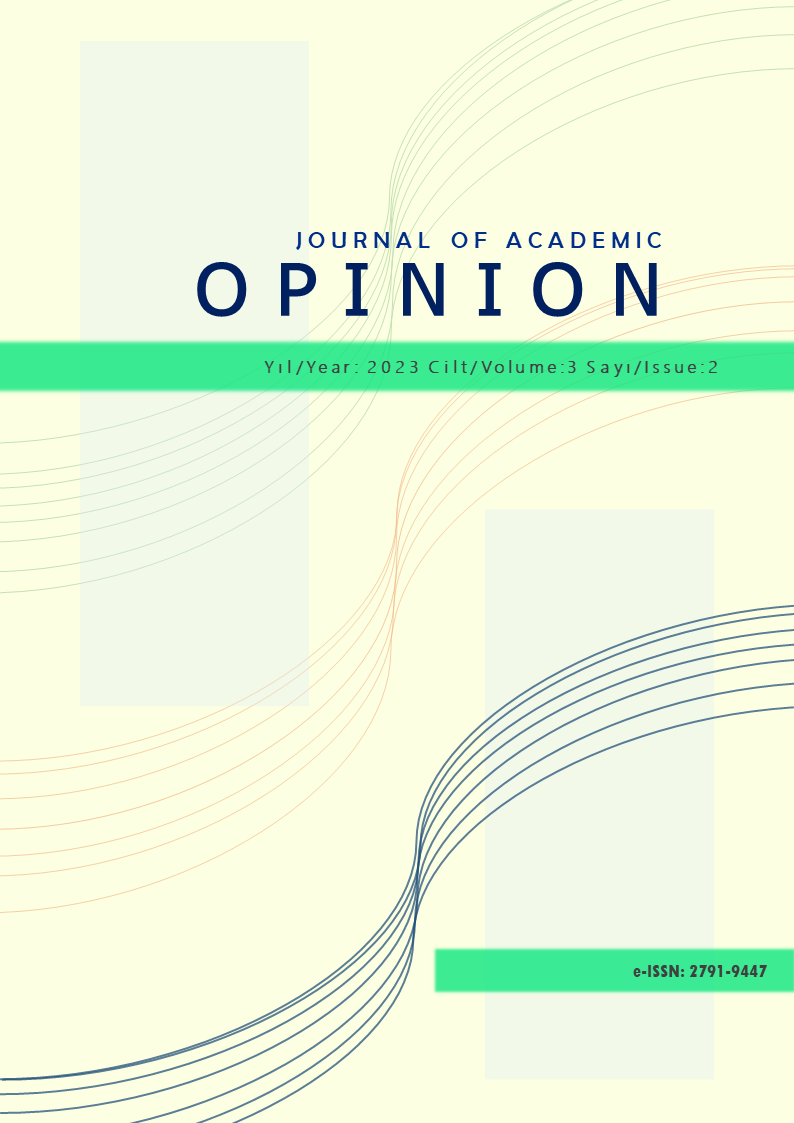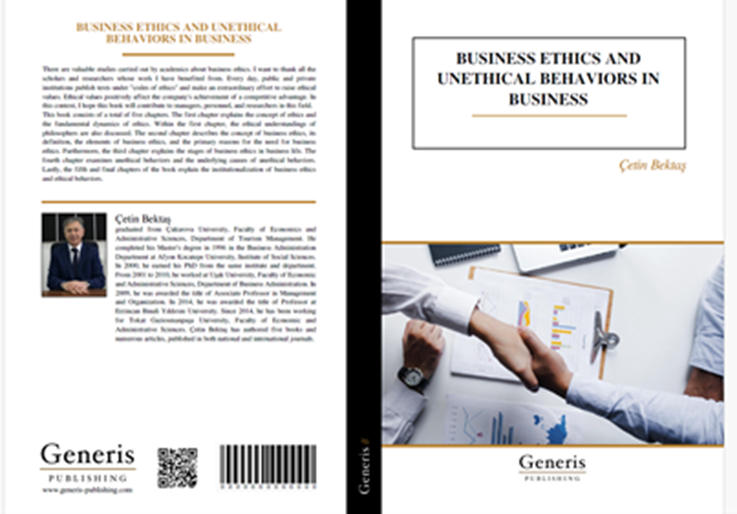The The Impact of Financial Liberalization on Income Distribution: Analysis of G-7 Countries
DOI:
https://doi.org/10.5281/zenodo.10445036Keywords:
Financial Liberalization, Income Distribution, G-7Abstract
The impact of financial liberalisation on income distribution has attracted increasing attention. However, the debate on whether financial liberalisation is a gain or a loss is still ongoing. Especially in the 1990s, following the collapse of the Bretton Woods system, financial liberalisation became a globally widespread concept. While this concept constituted the basis of neoliberal policies, it emerged as a saviour solution in periods when state policies were dominant. Financial liberalisation means the implementation of policies and reforms that emphasise the liberalisation of the international financial system and the liberalisation of capital flows. In this period, processes such as liberalisation of capital flows, development of financial markets, deregulation of the banking sector and increased international financial integration have come to the fore. In this context, examining the impact of financial liberalisation on income distribution has become an important issue among economists and researchers. Moreover, among the countries where financial liberalisation policies have been implemented, some of them have achieved positive results, while in others they have led to costly crises. In this framework, the aim of this study is to examine the impact of financial liberalisation on G-7 countries during the 2008 crisis period. This is because the potential effects of financial liberalisation on developed countries during crisis periods are desired to be observed. In the study, the relationship between financial liberalisation and income distribution was analysed by panel data analysis method using data from 2003-2013. According to the results of the analysis, it is observed that financial liberalisation has a positive effect on income distribution in developed countries.
References
Abiad, A., Oomes, N., and Ueda, K. (2008). The quality effect: Does financial liberalization improve the allocation of capital? Journal of Development Economics, 87(2), 270-282.
Adeel-Farooq, R. M., Bakar, N. A. A., and Raji, J. O. (2017). Trade openness, financial liberalization and economic growth: The case of Pakistan and India. South Asian Journal of Business Studies, 6(3): 229-246.
Agnello, L., Mallick, S. K., and Sousa, R. M. (2012). Financial reforms and income inequality. Economics Letters, 116(3): 583-587.
Ang, J. B., and McKibbin, W. J. (2007). Financial liberalization, financial sector development and growth: Evidence from Malaysia. Journal of Development Economics, 84(1): 215-233.
Asteriou, D., Dimelis, S., and Moudatsou, A. (2014). Globalization and income inequality: A panel data econometric approach for the EU27 countries. Economic modelling, 36, 592-599.
Aydemir, C., and Mehmet, K. (2007). Küreselleşme kavrami ve ekonomik yönü. Elektronik Sosyal Bilimler Dergisi, 6(20): 260-282.
Balan, F., Torun, M., and Kilic, C. (2015). Globalization and income inequality in G7: A bootstrap panel Granger causality analysis. International Journal of Economics and Finance, 7(10): 192.
Baltagi, B. H., and Li, Q. (1991). A joint test for serial correlation and random individual effects. Statistics and Probability Letters, 11(3): 277-280.
Batuo, M. E., and Asongu, S. A. (2015). The impact of liberalisation policies on income inequality in African countries. Journal of Economic Studies, 42(1): 68-100.
Bergh, A., and Nilsson, T. (2010). Do liberalization and globalization increase income inequality? European Journal of Political Economy, 26(4): 488-505.
Breusch, T. S., and Pagan, A. R. (1980). The Lagrange multiplier test and its applications to model specification in econometrics. The review of economic studies, 47(1): 239-253.
Cengiz, V., and Demir, S. (2023). Trade Openness, Financial Openness and Income Inequality: Empirical Evidence for MIST Countries. Uluslararası Ekonomi İşletme ve Politika Dergisi, 7(1): 16-27.
De Haan, J., and Sturm, J.-E. (2017). Finance and income inequality: A review and new evidence. European Journal of Political Economy, 50, 171-195.
Delis, M. D., Hasan, I., and Kazakis, P. (2014). Bank regulations and income inequality: Empirical evidence. Review of Finance, 18(5): 1811-1846.
Doğru, M. K. (2002). Finansal Serbestleşme ve Gelir Dağılımı: Türkiye Örneği. Master Tezi. Ankara: Ankara Üniversitesi Sosyal Bilimler Enstitüsü.
Dreher, A., and Gaston, N. (2008). Has globalization increased inequality? Review of International Economics, 16(3): 516-536.
Driscoll, J. C., and Kraay, A. C. (1998). Consistent covariance matrix estimation with spatially dependent panel data. Review of Economics and Statistics, 80(4): 549-560.
Durbin, J., and Watson, G. S. (1971). Testing for serial correlation in least squares regression. Biometrika, 58(1): 1-19.
Erauskin, I., and Turnovsky, S. J. (2019). Financial Globalization and the Increase in the Size of Government: Are They Related? Open Economies Review, 30(2): 219-253.
Eser, K. (2012). Finansal Serbestleşme Sürecinde Artan Kısa Vadeli Sermaye Hareketleri: Türkiye Ekonomisine Etkileri, Riskler ve Politika Araçları. Mesleki Yeterlilik Tezi. Ankara: Türkiye Cumhuriyeti Maliye Bakanlığı.
Furceri, D., Ge, J., and Loungani, P. (2017). Financial liberalization, inequality and inclusion in low-income countries. In Inequality and finance in macrodynamics (pp. 75-95). Germany: Springer.
Greene, W. H. (2000). Heteroscedasticity. Econometric Analysis, 4th. Upper Saddle River, NJ: Prentice-Hall Inc, 499-524.
Hausman, J. A. (1978). Specification tests in econometrics. Econometrica: Journal of the econometric society, 46, 1251-1271.
Heshmati, A. (2007). The relationship between income inequality, poverty and globalization. In The Impact of Globalization on the World’s Poor (pp. 59-93. Germany: Springer.
Kar, M., and Kara, M. A. (2003). Türkiye’ye Yönelik Sermaye Hareketleri ve Krizler. Dış Ticaret Dergisi, 8(29): 46-80.
Kaya, Y. T. (1998). Sermaye hareketleri ve kısa vadeli sermaye hareketlerinin modellenmesi: Türkiye örneği. Ankara: DPT Yayınları, No: 2487.
Kazgan, G. (1994). Yeni ekonomik düzen'de Türkiye'nin yeri: Altın Kitaplar Yayınevi.
Konukman, A., and Çiftçi, C. (2008). Küreselleşmenin gelir dağılımı üzerindeki etkileri. Ekonomik Yaklaşım, 19 (Special), 59-83.
Kónya, L. (2006). Exports and growth: Granger causality analysis on OECD countries with a panel data approach. Economic modelling, 23(6): 978-992.
Li, J., and Yu, H. (2014). Income inequality and financial reform in Asia: the role of human capital. Applied Economics, 46(24): 2920-2935.
McKinnon, R. (1973). Money and Capital in Economic Development, Washington, DC The Brookings Institutions.
Naceur, M. S. B., and Zhang, R. (2016). Financial development, inequality and poverty: some international evidence. International Review of Economics & Finance, 61,1-16.
Ni, N., and Liu, Y. (2019). Financial liberalization and income inequality: A meta-analysis based on cross-country studies. China Economic Review, 56, 101306.
Quinn, D. (1997). The correlates of change in international financial regulation. American Political science review, 91(3): 531-551.
Selen, U. (1997). Finansal Serbestleşme ve Kamu Açıklarının Enflasyonist Etkisi. Banka ve Ekonomik Yorumlar Dergisi, 34, 4.
Shaw, E. S. (1973). Financial deepening in economic development. New York: Oxford University Press.
Tropeano, D. (2006). Does financial liberalization affect the distribution of income between wages and profits?, in L-P. Rochon and S. Rossi eds. Monetary and exchange rate systems. A Global View of Financial crises (pp. 83-105). UK: Edward Elgar Cheltenham
Wang, S., and Luo, R. (2023). Income distribution, financial liberalisations and banking stability: Theory and international evidence. International Journal of Finance & Economics, 1-28.
Williamson, J., and Mahar, M. (2002). Finansal Liberalizasyon Üzerine Bir İnceleme: Liberte Yayınları.
Downloads
Published
How to Cite
Issue
Section
License
Copyright (c) 2023 Journal of Academic Opinion

This work is licensed under a Creative Commons Attribution 4.0 International License.





